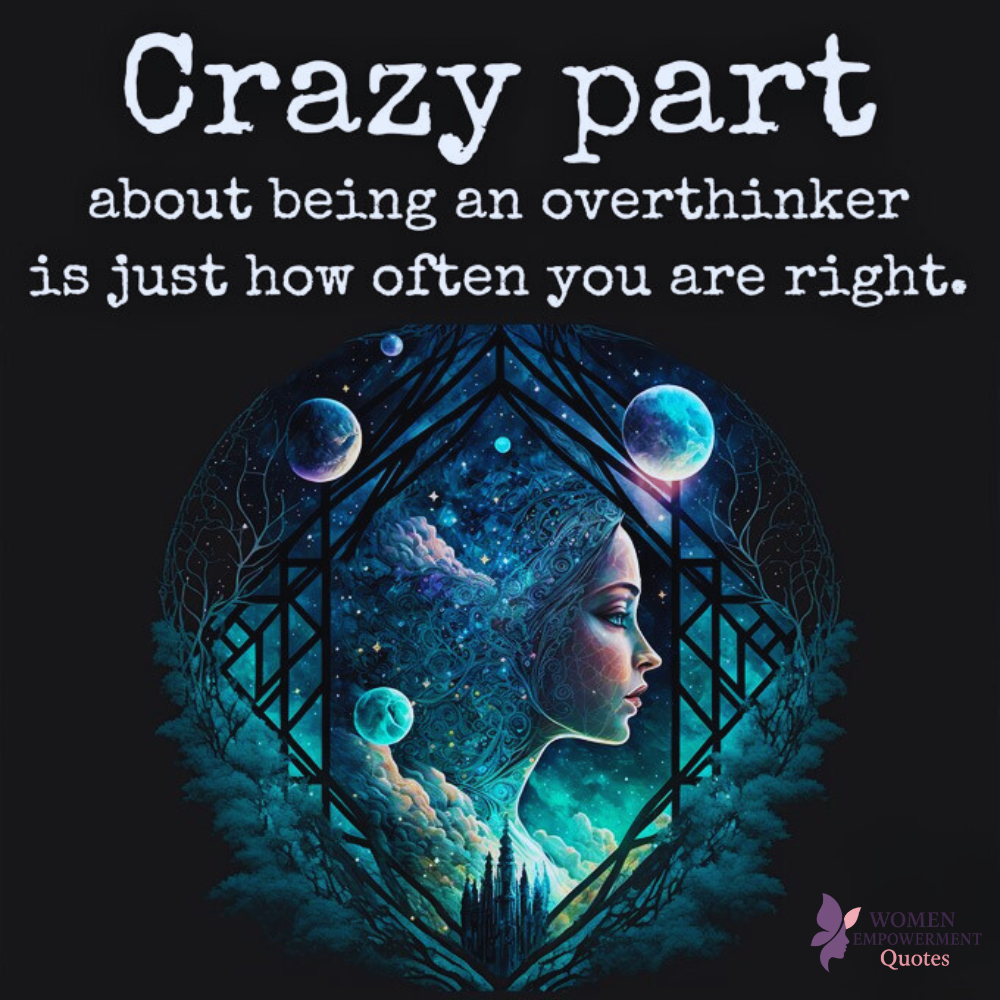
Finding the Balance Between Analysis and Action
The secret to turning overthinking into a strength lies in balancing thoughtful analysis with decisive action. While it’s valuable to consider different perspectives, there comes a point when overanalyzing becomes counterproductive. Setting time limits for decision-making, trusting your instincts, or seeking a second opinion can help prevent getting stuck in an endless loop of contemplation.
Trusting Intuition: An Overthinker’s Hidden Strength
Interestingly, frequent overthinkers often develop a strong sense of intuition. Through repeated analysis of past experiences and outcomes, they naturally fine-tune their instincts. Learning to trust this intuitive voice can reduce the need for endless rumination and lead to quicker, more confident decisions.
Turning Overthinking into a Positive Force
Overthinking doesn’t have to be your enemy — it can be redirected into a source of creativity and growth. By channeling deep thought into problem-solving, creative projects, or skill-building, you can leverage your natural tendency for thoughtful analysis into meaningful, productive action.
The Benefits and Drawbacks of Overthinking
Benefits of Overthinking:
-
Creative Problem-Solving: Deep thinking often uncovers unique solutions that others might overlook. Overthinkers can spot hidden opportunities by exploring every angle of a situation.
-
Attention to Detail: Precision and thoroughness often come naturally to overthinkers, making them excellent at spotting errors and perfecting tasks that demand a keen eye.
-
Future Planning: Visualizing different outcomes helps overthinkers anticipate challenges and prepare more effectively for what lies ahead.
Negative Effects of Overthinking:
-
Increased Stress and Anxiety: Dwelling on potential problems and worst-case scenarios can elevate stress levels and lead to anxiety or panic attacks.
-
Indecisiveness: When every option is scrutinized endlessly, making decisions becomes difficult, causing delays, missed opportunities, and frustration.
-
Mental Exhaustion: The constant mental chatter drains energy, hampers focus, and can lead to burnout.
-
Relationship Strain: Replaying conversations and overanalyzing interactions can create misunderstandings, jealousy, and emotional distance from loved ones.
-
Lowered Self-Esteem: Overthinkers often engage in self-doubt and negative self-talk, undermining their confidence and fueling feelings of inadequacy.